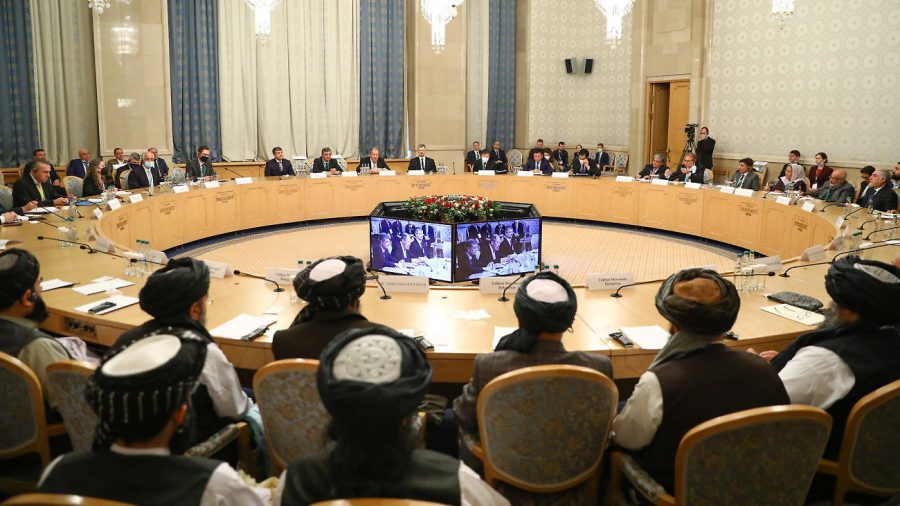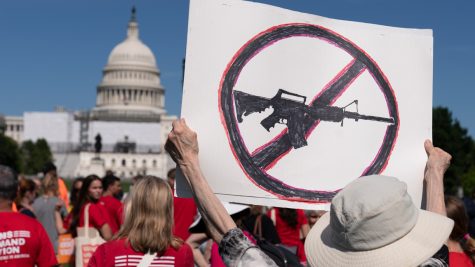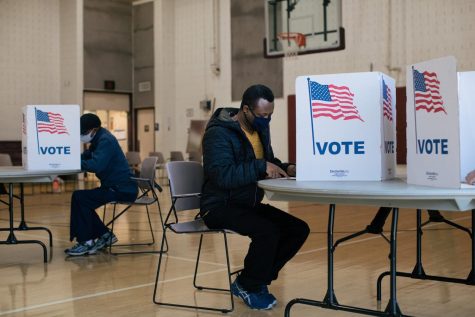Taliban’s Afghanistan and the Specter of US Interventionism
September 1, 2021
With the polity divided and the economy in peril, has the rallying call sounded for the end of the endless wars and the Truman Doctrine?
Amidst the reactionary zeal of 9/11, the Gulf War, and the invasion of Iraq, the U.S. found itself resisting against a beast of its creation — the Jihadist movement and the insurgent groups derivative of the ideology.
With the trappings of an emerging threat to U.S. sovereignty, U.S. troops prepared for deployment: first to capture Bin Laden, second to maintain peace, and third to dismantle terrorist cells, harboring within Afghanistan.
Under the pretense of national security in lieu of the 9/11 attacks, Gallup reported that 80% of the voting-age population advocated for the ground invasion of Afghanistan. On the eve of the U.S.’ Afghanistan campaign, 47% of the population lamented foreign entanglement in Afghanistan, while 46% did not. A plummet in popular support of such colossal magnitude warrants investigation.
The Bush administration mobilized hastily in the fallout of 9/11, with the express purpose of retributive justice towards Osama Bin Laden and hotbeds of religious extremism through invasions, namely in Afghanistan. Later administrations served to uproot the inherited conflict in Afghanistan, with the number of troops deployed rising from 30,000 to 100,000 under Obama, despite campaign promises to withdraw.
The Trump administration briefly advocated for the campaign, opting to bolster the number of active troops and loosening the rules of engagement, as outlined in his speech on Aug. 21, 2017. Despite Donald Trump’s formal endorsement, the former President acknowledged the temporary nature of the troop surge and declared the withdrawal of U.S. soldiers as his ultimate goal.
Peace negotiations between the U.S. and Taliban representatives were most fortuitous in Aug. 2019, although Trump canceled talks with the Taliban at Camp David for an unspecified reason, suspending discussions between both parties until further notice. Peace talk processions were deemed dubious and insensitive towards the Afghan government, whose agency was largely omitted in negotiations.
Nevertheless, in February 2020, the Taliban and the U.S. government signed and ratified an agreement to withdraw troops from Afghanistan by May 1. The conditions for the U.S. exit and Taliban diplomacy were noted to have been unbalanced, heavily favoring Taliban interests within Afghanistan.
Most notably, the agreement stipulates the release of 5000 Taliban troops from U.S. capture, providing the Taliban with expert fighters and boosting group morale. The signed agreement has been viewed as granting legitimacy to the Taliban insurgents by the United States. Biden, who has previously scrutinized the U.S.’ involvement in Afghanistan, was selected to honor the cease-fire agreement.
Before the unveiling of Biden’s disentangling strategy on July 8, his administration displayed marginal popularity among Democrats and moderate approval ratings among Republicans. Following the execution of the rescue operation, Biden’s approval ratings fell to 47% among Democrats and 47% among Republicans.
The fragile view of the Biden administration threatens not only the President’s reputation but could jeopardize the future of political discourse, which is dependent on Biden’s next steps in office.“[As to his ‘We Will Not Forgive’ speech], I think he is trying to garner political support and prepare a retaliatory attack after a disastrous campaign; those aren’t mutually exclusive,” Dr. Maria Ortuoste said, an expert on International Relations and International Organizations.
The fault lines of partisanship are beginning to crack beneath Biden, for whom this situation is an absolute PR nightmare. Recent terrorist attacks on the Kabul airport have enlivened a fraction of his voter base against him. Perpetual conflict, after all, is possible if the public supports it. “While the individual American is compassionate, the government is [gray],” said SOURCE.
Ortuoste believes that a response is very much within the realm of possibility. “Utiliz[ing] covert action and [leveraging] the Northern Coalition is imperative in regaining control of Afghanistan… The US military cannot turn back now.”
The campaign in Kabul was too flippant and directionless; strategyless and protracted, according to Ortuoste. Afghanistan’s government, backed by U.S. aid, was rife with corruption, unable to provide for the needs of the Afghan population. Despite access to the U.S. military arsenal, Afghanistan was poorly trained in repairing such advanced weaponry. Currently, it is estimated that less than $10 billion worth of weapons remain in Afghanistan. “Bringing guns does not bring democracy,” said SOURCE.
Regardless of the tenuous presence, the U.S. military deserves credit for the protection of Afghanistan’s minority groups and the expansion of suffrage for women. Drawing upon historical touchstones from 1996’s Afghanistan, the fundamentalist movement barred women from receiving education, forced women to be accompanied by men, and mandated the burqa. Despite the Taliban’s human rights violations during their 1996 reign, the group has recently attempted to improve public relations by promising to uphold the emancipation of women.
In his 2017 speech, Trump elaborated upon his approach to withdrawing from Afghanistan, citing that the priority is to ensure a stable government and the procession of elections. Iraq, in his eyes, has been a disaster, from the ashes of which ISIS was able to rise and prosper, hence a power vacuum is the condition for loss.
Trump has not acted in alignment with his sentiments, as the withdrawal of U.S. soldiers and the subsequent abandonment of the Kurdish fighters in Turkey would attest to. Biden perpetuates this trend, with the hasty evacuation of U.S. troops and allies contributing to an immediate humanitarian and refugee crisis in the surrounding area. As a result, Congress seeks to repeal the executive power of the right to authorize emergency conflicts, possibly adding a hurdle to prevent another “forever war.” It remains to be seen whether the motion will be successful.

















